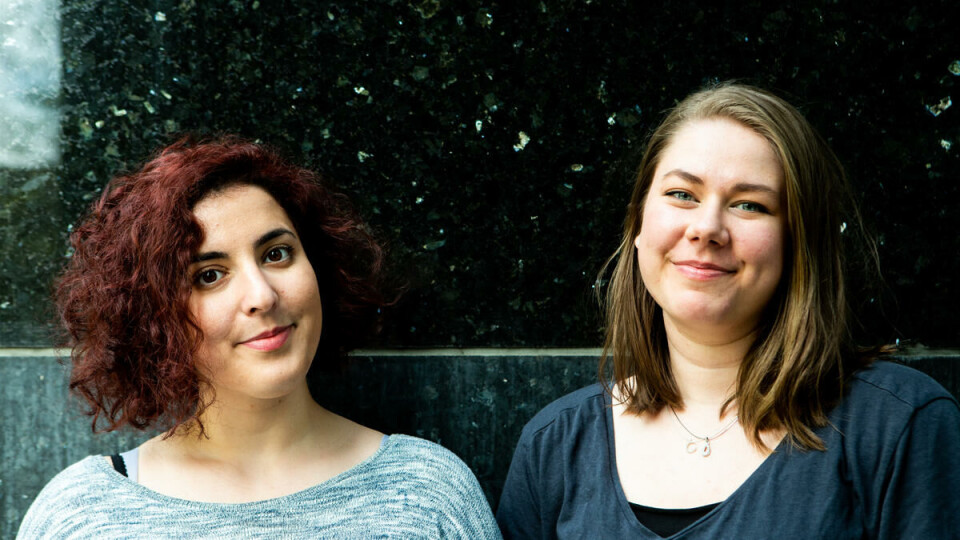
No to academic boycotts and yes to broader internationalization. Meet Internationalista’s top two candidates.
In 2014 the political party «Internationalista» emerged. Four years later, they’re still fighting for the same cause: to make life easier for international students at the University of Oslo.
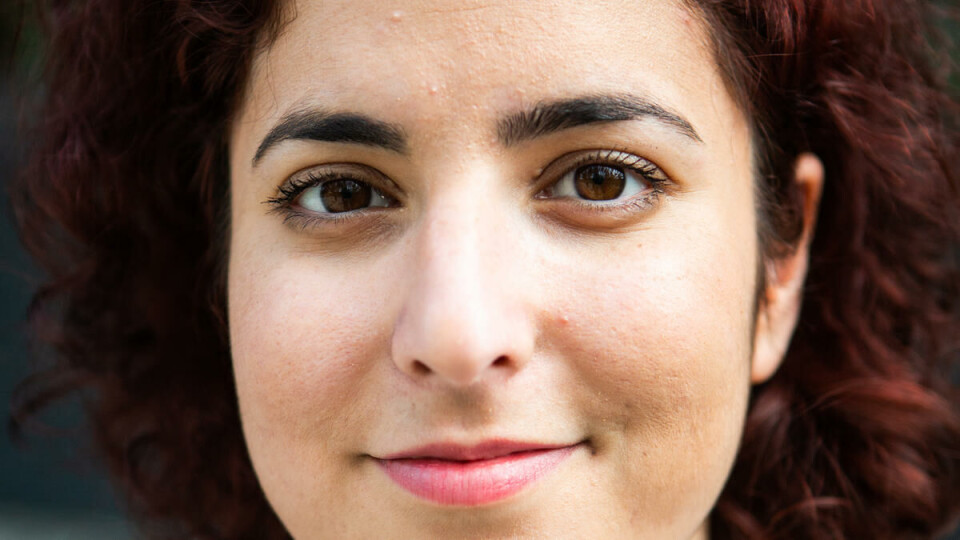
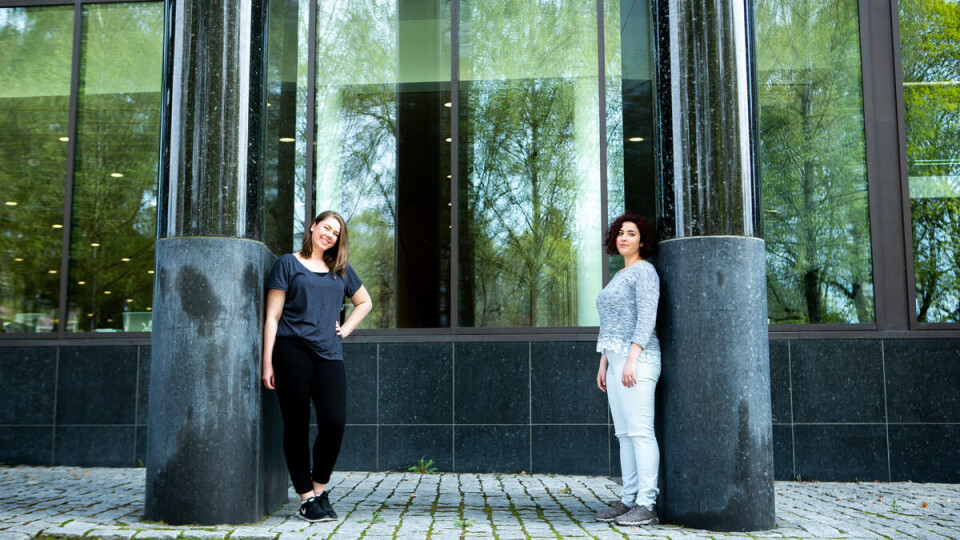
«The name Internationalista came from the thought that we wanted to make a list that is concerned a little bit more about international affairs and international students at the University of Oslo,» says Marianna Khodabandehlou. She’s the list leader and second candidate for the internationally-oriented political party. Universitas sat down with and talked with the top two candidates of Internationalista, ahead of the Student Parliament elections. We meet her and Julie Alsin, the first candidate, at our appointed spot: right outside Villa Eika, the very heart of the University of Oslo. They’ve just come from an election rally outside Rikshospitalet. There was precisely a week left before the election ends and every single vote counts.
First encounter with Internationalista
Khodabandehlou seems to struggle to remember her first encounter with Internationalista. Then it comes to her: It was May 2015. Three years ago, Internationalista was fighting against extra study fees for international students. It was an important issue especially for Marianna, and shortly after, she started engaging more in student politics and after a while she joined the Internationalista.
«And from then I found out what the Internationalista was about,» said Khodabandehlou. She’s very proud of what she calls her «multicultural background,» with family from both Iran and Greece.
Julie Alsin was born and raised in Norway and is also the first Norwegian top candidate for Internationalista. She hasn’t always identified as being a hundred percent Norwegian. Both sides of her family are from different countries.
«So according to the Progress Party I’m probably a third-generation immigration,» she said.
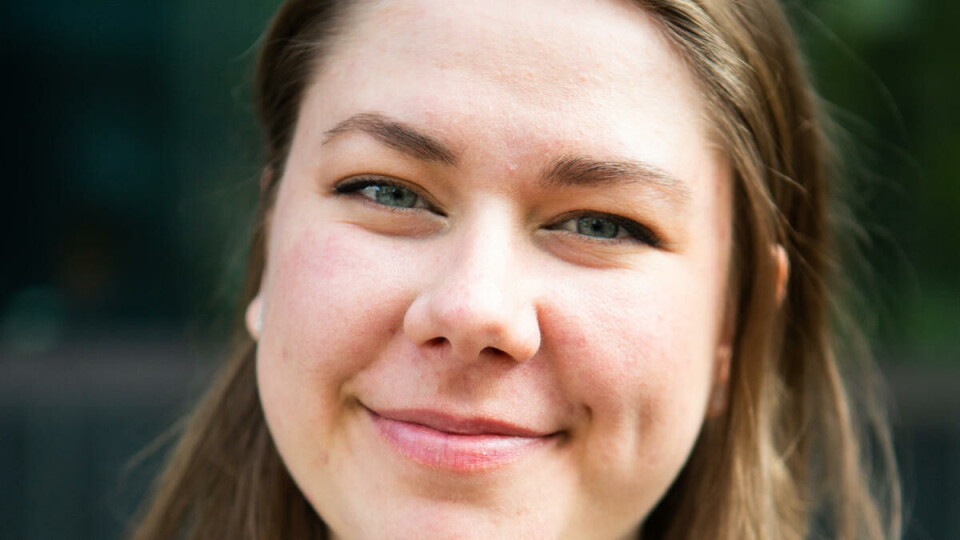
We believe in free education and that’s what the university promise to their students and yet the international students don’t see that and they have to pay a price.
But how did she end up in an internationally-oriented political list?
Her first encounter with Internationalista was actually the beginning of this year, but the motivation behind it was her own personal experience being an international student. When she was 20 she moved to Eastern Poland to study medicine.
«I was very much an outsider. It was a really hard field of study,» she said.
She dropped out after a year and a half, mainly because she was homesick.
«But I very much have felt myself how it is to study in another country. It’s something I’m very passionate about, to make UiO more welcoming towards international students and try to give them more information about all the secret codes that are hidden in the society,» she said.
Norwegian labor law and «broader internationalization»
Their core points this semester include having more information on English, especially about Norwegian labor law. Universitas revealed in March that international students working at The Nighthawk Dinner were working under illegal conditions and fear culture.
«There’s not enough information for the international students to get a grip of this country. To have enough information about their work, about their life and what they should do,» explained Khodabandelou.
They also want broader internationalization at the University of Oslo, meaning the university should offer more study programs in English. There used to be a self-financed program where international students could learn one year Norwegian and then start a bachelor in Norwegian. This offer does not exist anymore.
«People at the university thought that was illegal by going against «Norwegian values» and that was the reason why the university put down the self-financed bachelor,» Khodabandehlou said.
She herself had to pay 26,000 kroner for two semesters of Norwegian at the university, money she borrowed from her family and close friends. She worries not all international students may have the same opportunity she had of learning Norwegian.
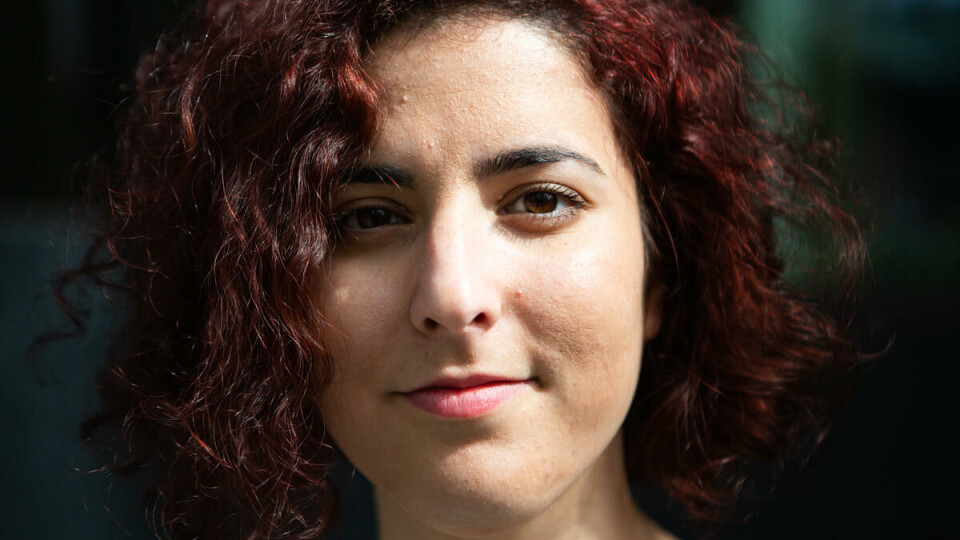
You are not supposed to target students as they are the ones who will be able to change the future.
Even though she’s happy with the work the President of the Student Parliament, Jens Lægreid has done she still feels a bit dissatisfied with his focus on international students. She is particularly pleased with the work of his predecessor, Hans Christian Paulsen.
«He was so supportive and he helped us every step of the way. We could always talk to him and he was so open-minded. His advice and his drive is the only thing that is pushing me to keep this list [party] going and hope for something better for the students,» Khoudabandehlou said.
No to boycotting
Another core point in their election platform is academic freedom. Earlier this year the Student Parliament voted to boycott Israel, but shortly right after did a turnaround and decided not to boycott. In their platform it stands that «as a principle, Internationalista stands against boycotts aimed against specific countries.» They support strengthening the Student Parliaments action plan that prevent UiO from contributing to breaches of international law or war crimes and to show solidarity with students in conflict areas.
Why doesn’t Internationalista support a boycott of states?
«We live in a world that’s already torn against so many different laws. Boycotting a country is difficult because a country is led by people higher up. Boycotting a whole country means that you are targeting students and civilians who have literally done nothing to you,» Khoudabendehlou said.
She adds that Internationalista does not wish to restrict people from coming to the university.
You have also said that you support academic freedom and that the university should not contribute to breaches of war crimes. But it’s also a fact that countries like Israel are committing war crimes.
«There is no country that is not committing war crimes. In the war that keeps going on right now between Syria, there is absolutely no one that can put their hands up and say I have not sold weapons or I haven’t done any evil,» Khoudabendelouh said.
«We are against boycotts and bans in general. Putting people in boxes and banning them is not good,» Alsin said.
«But we are not saying that war crimes are okay,» Khodabandehlou underlined.
«We just believe in academic freedom. You are not supposed to target students as they are the ones who will be able to change the future,» she said.
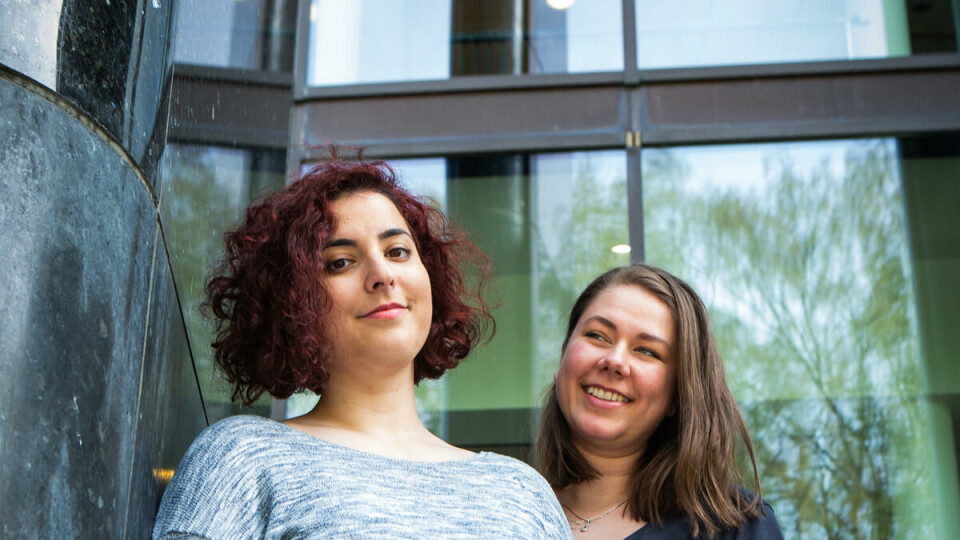
Increased visa fees
There’s also been questions as to why Internationalista doesn’t not have international fees as a core point. Why is that?
«More information in English is something we can fight at the university level. The same with internationalization, fighting for an English bachelor is not impossible you just have to have the right conversations with the right people but fixing the international fees requires that we have to speak with Stortinget. We are completely against these absurd student fees that they put for international students,» Khodabandehlou said.
«We believe in free education and that’s what the university promise to their students and yet the international students don’t see that and they have to pay a price,» Alsin said.
Khodabandehlou says Internationalista does not wish to put points they feel they will not be able to achieve.
«It’s like lying to the students. It is something that I will fight for, but putting it as a core point to get people to actually trust me and to vote for me, so I could fulfill that promise is ridiculous because I don’t have the confidence in actually doing it. It needs me and the Student Parliament to talk with the higher ups and to fight with the university to reduce the fees. But it is something that I feel is very difficult,» she said.
«A step into the future»
As the interview comes to an end, Khodabandehlou informs us that she has to leave for work. But not without answering one last question.
What motivates you?
«I am very motivated into getting an English bachelor into the university. I think it’s going to make a huge difference. It’s going to make this university a whole new place. Even if it’s a small bachelor, I will feel so satisfied with the effort we have put in. It will just be a huge step into the future. It’s going to be a new turn for the universities in Norway,» Khodabandehlou said.
«I would say growth and a sense of achievement. Setting goals and achieving them and that’s what I want for UiO as well. I want us to grow and do better internationally as well, and also get a better reputation. It will gain [for] everybody,» Alsin said.































